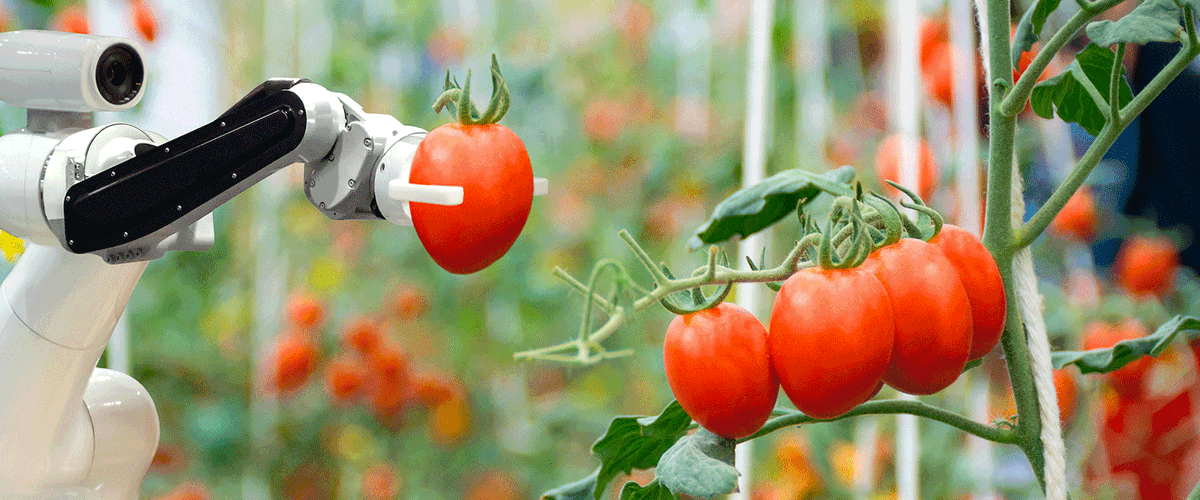Robotics & Multi-Agent Systems
Robotics and Multi-Agent Systems involves the concepting, building, and
implementation of robots, as well as the collaborative programming of multiple robots, to perform certain tasks.
NRI: FND: A Formal Methods Approach to Safe, Composable, and Distributed Reinforcement Learning for co-Robots
Many applications require heterogeneous teams of robots to collaborate with each other and with humans to accomplish complex tasks. Consider, for example, a futuristic robotic restaurant, in which the goal is to make hotdogs and serve them together with drinks to incoming customers. A couple of robotic manipulators have sensors and actuators allowing them to […]
A Soft Robotic Sleeve to Enable Safer and Easier Colonoscopy Procedures
Current flexible endoscopes have limited dexterity and sensor feedback, making navigation in colonoscopy a challenging task. These technical limitations make screening procedures poorly tolerated by patients, leading to low rates of compliance with screening guidelines and/or incomplete colonoscopy, that is associated with higher rates of interval proximal colon cancer. Alternative engineering solutions have been proposed […]
GCR: Collaborative Research: Fine-grain generation of multiscale patterns in programmable organoids using microrobots
People with diseased or defective vital organs often need organ replacement to survive, but the availability of replacement organs is severely restricted by shortages of suitable tissue-matched donors and complexities such as postmortem organ deterioration and immunological rejection. These problems could be overcome by using high fidelity artificially-grown organs, but achieving that goal faces daunting […]
A Bug’s-Eye View
Researchers develop a new camera inspired by insects’ compound eyes Even though we’ve developed the ability to shrink down cameras to fit on a phone, the underlying principle of the camera itself hasn’t really progressed. As a camera gets smaller, there’s a trade-off between field-of-view and image quality; the larger the field-of-view, the more distorted […]
Advancing Smart Cities with the Internet of Cars
Quicker, Safer and Greener Intersections Intersections with Dynamic Traffic Control In road transport engineering, an intersection is defined as at-grade junction where two or more roads or streets meet or cross. Statistically, it has been evidenced that intersections present a major hurdle in traffic control as they account for the lion’s share of accidents and of […]
Meet Jaco and Baxter, Machine Learning Robots Who Cook Perfect Hotdogs
BU engineers built the culinary bots to test a framework that could improve self-driving cars and other artificial intelligence Craving a bite out of a freshly grilled ballpark frank? Two robots named Jaco and Baxter can serve one up. Boston University engineers have made a jump in using machine learning to teach robots to perform […]
Moths Teach Drones to Fly
Research is first to apply animal data to autonomous vehicle navigation When an autonomous drone is deployed for a mission, it flies on a specific, programmed route. But if there are any surprises along the way, the drone has a difficult time adapting to a change because it hasn’t been programmed on how to do […]
PLOS Computational Biology: Learning from Animals: How to Navigate Complex Terrains
PLOS Computational Biology issued a press announcement on a paper that it published today authored by Boston University CISE Director Yannis Paschalidis (Professor ECE, SE, BME), PhD candidate Henghui Zhu (SE), former CISE post-doctoral associate Armin Ataei, former CISE visiting student scholar Hao Liu (Zhejiang University), along with University of Washington collaborators Professor Thomas Daniel (BIO, […]
Science Robotics: A New Approach to Teaching Robots
The two robots, Jaco and Baxter, must work together to cook, assemble and serve a hot dog. They must detect and find their supplies, shown in the upper left-hand corner, which are tracked with motion capture throughout the experiment. A new machine-learning framework could be used to complete high-risk, complex tasks Machine learning can identify […]
NEXTCAR Self-driving Car in Action Advances the Future Internet of Cars
Traffic congestion around the world is worsening, according to transport data firm INRIX. In the U.S. alone, Americans wasted an average of 97 hours in traffic in 2018 – that’s two precious weekends worth of time. Captivity in traffic also costs them nearly $87 billion in 2018, an average of $1,348 per driver. Clearly, the […]
